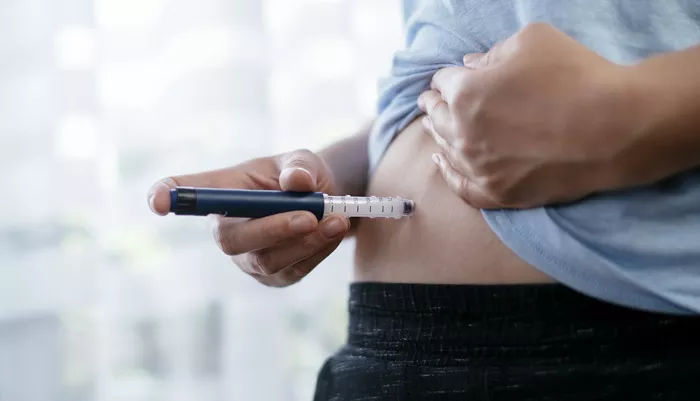Obesity is a growing health crisis across the globe. For many individuals, diet and exercise alone are not enough to lose weight effectively. This is where medical solutions such as weight loss injections come into play. These injections, often containing GLP-1 receptor agonists like semaglutide or liraglutide, help regulate appetite and blood sugar levels. However, not everyone can immediately qualify for this form of treatment. To ensure safety and effectiveness, it is essential to meet specific medical requirements. This article provides a professional, in-depth explanation of how to qualify for weight loss injections through evidence-based and clinically recommended steps.
1. Know the Purpose and Benefits of Weight Loss Injections
Weight loss injections are not a one-size-fits-all solution. They are primarily used for individuals who are obese or overweight with medical complications. These injections can:
- Help regulate hunger and promote satiety.
- Improve insulin sensitivity and reduce blood glucose levels.
- Support long-term weight management when combined with lifestyle changes.
They are prescribed as part of a broader medical Weight Loss And Wellness program, often under strict supervision from licensed healthcare professionals.
2. Understand the Eligibility Criteria
Body Mass Index (BMI) Requirements
The most common criteria used for qualifying is BMI. Individuals typically must have:
- A BMI of 30 or more (classified as obese)
- A BMI of 27 or more with at least one weight-related health condition such as type 2 diabetes, high blood pressure, or sleep apnea
This ensures that the treatment is reserved for those with the highest clinical need.
Medical History and Chronic Conditions
Your physician will assess your overall health condition. Certain health conditions might qualify you more easily for injections:
- Type 2 diabetes
- Polycystic Ovary Syndrome (PCOS)
- Cardiovascular risks such as high cholesterol
These assessments are vital for reducing risk and customizing treatment.
3. Medical Evaluation and Testing
Initial Consultation with a Weight Loss Specialist
A certified provider will conduct a comprehensive physical and medical assessment. You will likely undergo:
- Blood tests
- Thyroid function screening
- Liver and kidney function tests
This helps in evaluating whether weight loss injections are safe for you to use.
4. Lifestyle and Behavioral Commitment
Nutrition and Physical Activity Plan
Qualifying for weight loss injections also requires you to show a commitment to lifestyle changes. Many programs will require you to:
- Follow a calorie-restricted meal plan
- Engage in physical activity for at least 150 minutes a week
These are not optional. Injections work best in conjunction with healthy behaviors.
5. Selecting the Right Medical Program
Customized Treatment Plan
Once you are approved, the provider will tailor a plan for you. This includes:
- Dosage and frequency of injections
- Regular monitoring for side effects
- Adjustments based on progress and tolerance
These plans usually span several months and include periodic assessments.
6. Monitoring and Managing Side Effects
Common Side Effects
Most weight loss injections have mild side effects, especially in the initial phase. These may include:
- Nausea or upset stomach
- Headaches
- Constipation or diarrhea
When to Call Your Doctor
Seek immediate help if you experience:
- Severe abdominal pain
- Pancreatitis symptoms
- Vision changes or allergic reactions
7. Alternatives if You Don’t Qualify
Other Medical Options: If you don’t meet the criteria, don’t lose hope. Your provider may suggest:
- Medical Weight Loss Pills
- Appetite suppressants
- Metabolic boosters
Long-Term Weight Management Programs: Many patients succeed with guided nutrition counseling and digital coaching tools. You might also consider structured weight loss programs that combine behavioral therapy with medication-free approaches.
8. Cost and Insurance Considerations
Insurance Coverage: Coverage varies by location and provider. Many insurance plans cover weight loss injections only when medical necessity is established. Always check with your provider in advance.
Out-of-Pocket Costs: If not covered, monthly costs for injections can range between $900 to $1500. Some clinics offer payment plans or discount programs for long-term clients.
Conclusion
Qualifying for weight loss injections is a process that involves much more than just wanting to lose weight. It requires a medically justified need, lifestyle commitment, and professional supervision. By understanding the qualifications, seeking help from certified programs like medical Weight Loss And Wellness, and making sustainable lifestyle changes, you can begin your journey toward a healthier body and mind. Consult with a healthcare provider today to assess your eligibility and take the first informed step on your weight loss journey.
Related Topics:
What Are Lipo Shots and Do They Work


